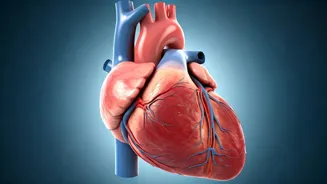Early Cardiac Screening
A key recommendation from health professionals is the implementation of early screening programs. These programs are designed to identify potential heart
problems before they become life-threatening. This proactive approach can involve various tests, including electrocardiograms (ECGs), which monitor the heart's electrical activity, and echocardiograms, which provide images of the heart's structure and function. Early detection allows for timely intervention, such as medication, lifestyle modifications, or, in some cases, more invasive procedures. These screenings become especially important for individuals with a family history of heart conditions or those who participate in intense physical activities. Identifying these risks early can significantly reduce the likelihood of sudden cardiac arrest by allowing for preventative measures to be put in place and monitored by medical professionals.
Embracing Healthy Habits
Beyond screening, a holistic approach to health plays a critical role. This emphasizes the significance of lifestyle adjustments. A diet rich in fruits, vegetables, and whole grains, while limiting processed foods, saturated fats, and excessive sodium, is crucial. Regular physical activity is another pillar, with recommendations varying depending on age and individual health conditions. Consistent exercise strengthens the cardiovascular system, improving overall heart health. Additionally, avoiding smoking and excessive alcohol consumption are paramount. These habits are strongly linked to heart problems. Maintaining a healthy weight, managing stress levels, and ensuring adequate sleep further support a healthy heart. These lifestyle choices collectively build a robust defense against cardiac risks and promote overall well-being.
Recognizing Warning Signs
Educating young people and their families about potential warning signs is also vital. These warning signs, though sometimes subtle, can be indicators of underlying heart issues. Symptoms like unexplained chest pain, especially during exercise, should never be ignored. Dizziness, particularly during or after physical activity, is another red flag. Shortness of breath that isn't related to exertion levels, fainting spells, and palpitations (irregular heartbeats) are all potential warning signs that warrant prompt medical attention. A family history of heart disease or sudden cardiac death increases the likelihood of inherited heart conditions. Knowing these warning signs and seeking immediate medical evaluation if they appear, is vital for early diagnosis and treatment. It ensures swift action can be taken to mitigate potential risks.
Community and Schools
The combined efforts of communities and educational institutions are essential for implementing these preventive strategies. Schools, in particular, play a critical role in promoting heart health awareness. They can integrate health education into the curriculum, teaching students about healthy eating, exercise, and the risks associated with unhealthy habits. Implementing mandatory pre-participation physical examinations for student athletes helps identify potential heart problems before they become a problem. School staff, coaches, and volunteers should be trained in basic life support (BLS) and cardiopulmonary resuscitation (CPR) to respond effectively to cardiac emergencies. Community health initiatives, such as awareness campaigns and free screening events, further enhance these efforts. These combined community and educational efforts increase early detection and empower the younger generation to manage their health.



















